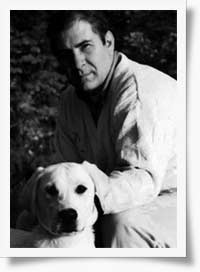 Arthur Flemming had the distinction of serving every President from Coolidge to Clinton. He was, among other things, a member of the Hoover Commission, Secretary of the Department of Health, Education, and Welfare under Eisenhower, and head of the Department of Aging under Nixon and Carter.
Arthur Flemming had the distinction of serving every President from Coolidge to Clinton. He was, among other things, a member of the Hoover Commission, Secretary of the Department of Health, Education, and Welfare under Eisenhower, and head of the Department of Aging under Nixon and Carter.
Before entering public service, Arthur briefly considered going to divinity school. He remained devoutly religious all of his life. For 65 of his 92 years, he attended Foundry United Methodist Church in Washington, DC, taught Sunday school during the first service and sat in the same place, at the end of the fourth pew from the back, for the second service, every Sunday he was in town.
During the week, Arthur had a standing reservation for lunch at Twigs, a restaurant near his office. Arthur held court there, entertaining a revolving cast of regulars and a seemingly endless supply of new friends.
At least once a month while he lived, I found myself worked into the rotation. I would receive a call from Arthur’s secretary inviting me to join him for lunch, sometimes that same day, sometimes a couple of weeks in advance. I rarely knew Arthur’s agenda, but I never turned down an invitation.
We talked about health care reform. We talked about aging. We talked politics. We talked religion. We talked about life.
On one of these occasions, Arthur began a discourse on applied Christianity. He said the most difficult theological question for him to understand and apply was the notion of loving your neighbor.
With a wry smile, he said, “As you have undoubtedly noticed there are a lot of disagreeable people in the world. Some of our neighbors are very difficult to like.”
Arthur found the solution to his dilemma in a sermon he heard in England during World War II – a time when the consequences of loving, as well as not loving, our neighbors were abundantly evident.
The answer, Arthur said, lies in the difference between loving and liking and the reason we do one or the other or both.
“There is no commandment to like our neighbors,” Arthur said.
In choosing to love the neighbors we do not like, we separate who we are from what we do. We can love the essence of an individual without liking the choices they have made or the way they live their lives. We can love the sinner without approving of the sin.


This is wonderful!